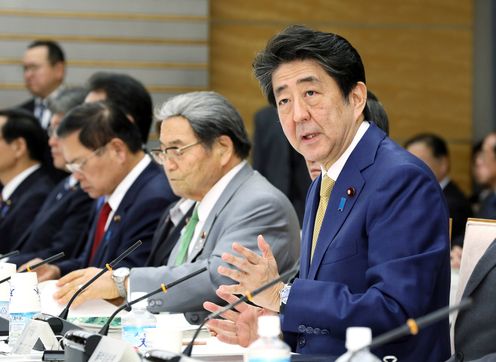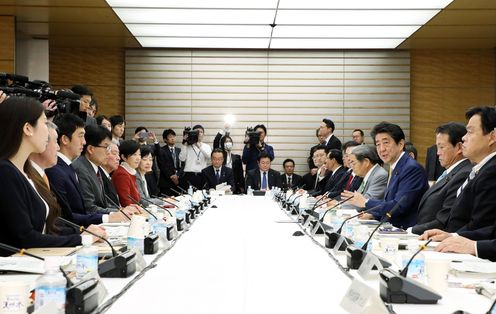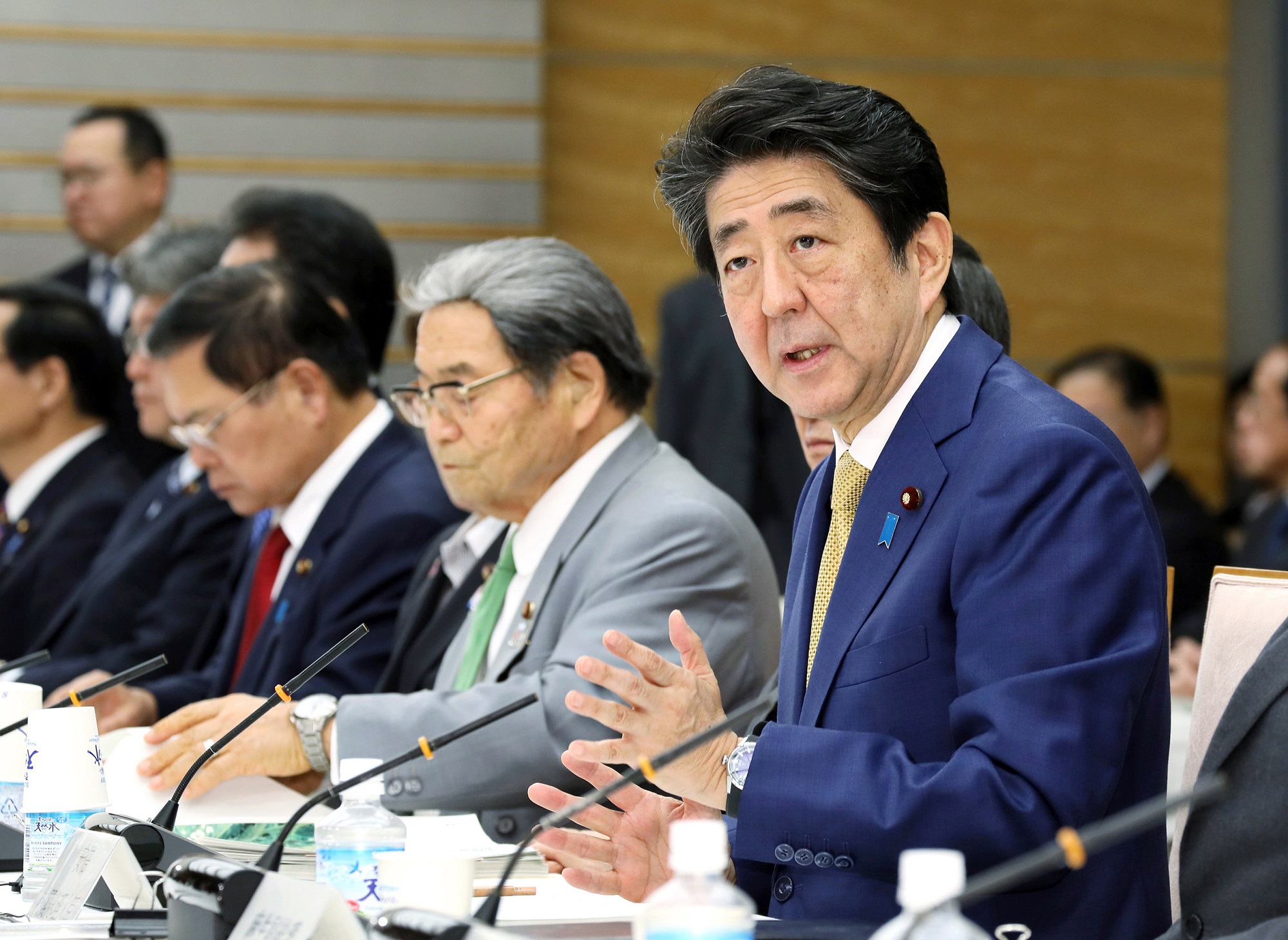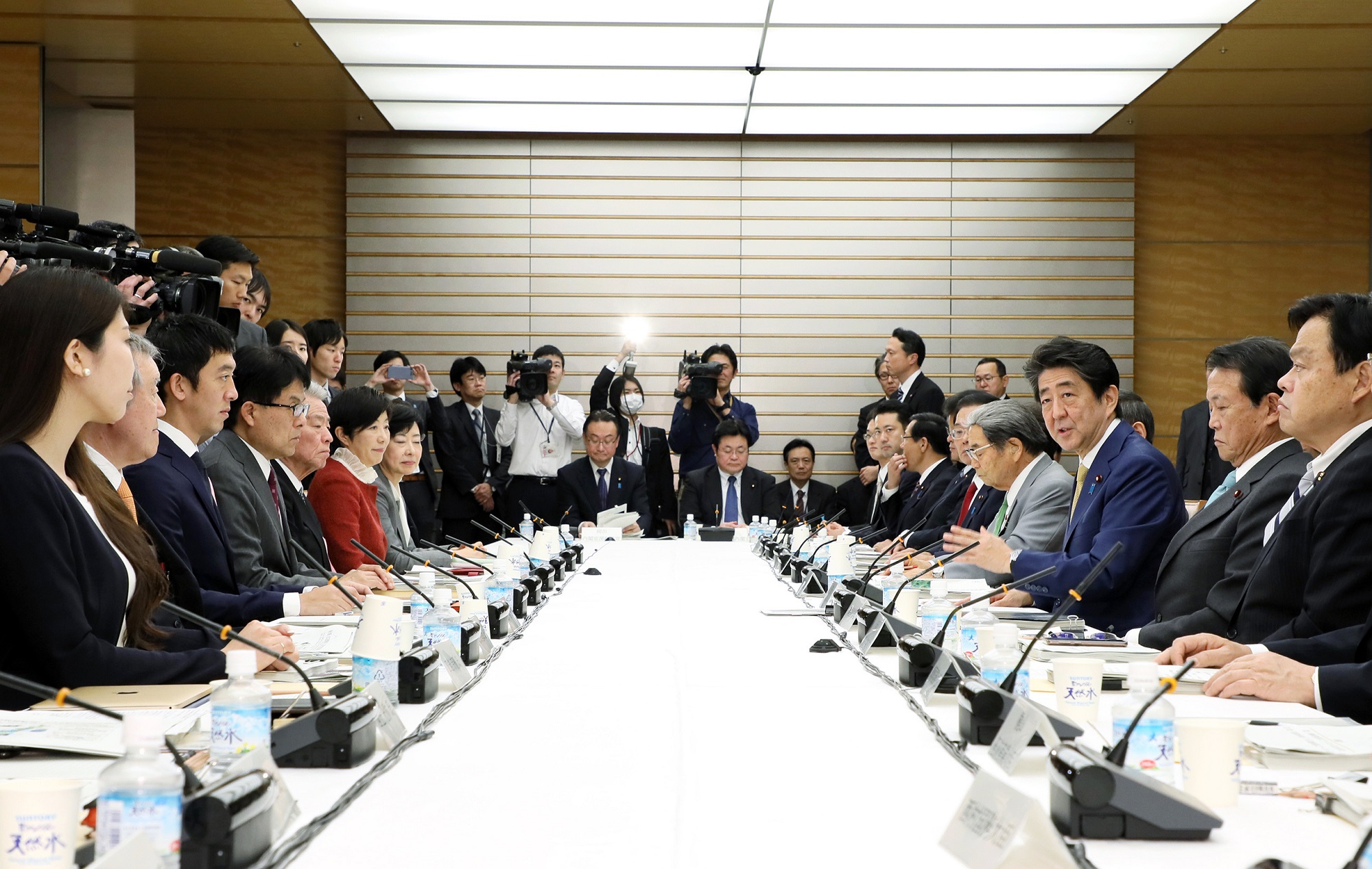Home > News > The Prime Minister in Action > December 2019 > Council on Overcoming Population Decline and Vitalizing Local Economy
The Prime Minister in Action
Council on Overcoming Population Decline and Vitalizing Local Economy
December 19, 2019

Photograph of the Prime Minister making a statement (1)

Photograph of the Prime Minister making a statement (2)
[Provisional Translation]
On December 19, 2019, Prime Minister Shinzo Abe held the 21st meeting of the Council on Overcoming Population Decline and Vitalizing Local Economy at the Prime Minister’s Office.
At the meeting, discussions were held on the 2019 revision to the Long-term Vision for Overcoming Population Decline and Vitalizing Local Economy and the second phase of the Comprehensive Strategy for Overcoming Population Decline and Vitalizing Local Economy, as well as on selected cases of regional revitalization.
Based on the discussion, the Prime Minister said,
“Today we discussed the second phase of the Comprehensive Strategy for Overcoming Population Decline and Vitalizing Local Economy. I express my appreciation for your contributions.
While Council Members Mr. Terada and Mr. Deguchi gave us a brief, we also heard from Mr. Nishigami, Mr. Okazaki and Mr. Nakamura, who are making significant contributions in the frontline of regional revitalization.
All three of them have migrated from Tokyo to their respective areas and are playing a significant role there. Each of them shows a way forward for regional revitalization. Their presentations reaffirmed for me that people, or human resources, are important in building an attractive region.
From next fiscal year, our efforts on regional revitalization will proceed to its second phase and enter a new stage.
In this second phase, we will further enhance our initiatives towards achieving the major goals of adjusting the excessive concentration of the population in Tokyo, and balancing the movements in and out between the Tokyo area and other regions.
From this fiscal year, we started a scheme that offers up to 3 million yen to those who migrate from Tokyo to the regions and take a job or start a business.
Under this scheme, the movement of migration has initiated throughout the country and there have already been around 400 cases of new businesses starting. We would like to strengthen this scheme, such as by easing the eligibility criteria towards further expansion. When we establish this kind of scheme, it is very important whether it is actually used. We intend to upgrade this scheme, while always giving a review from that perspective.
Furthermore, we will strongly promote the creation and expansion of the ‘population with ties’ in the second phase.
Specifically, while doubling the number of staff of the professional and management human resource strategy centers that we have established at each prefecture across the country, we will start a new scheme to encourage people in major cities to take another job or side jobs in areas outside these cities by assisting with travel expenses. Furthermore, we intend to create an actual flow of people, through the establishment of a center for ‘population with ties’ in each municipality, taking advantage of this opportunity of rising interest in migration. We will also accelerate the creation of attractive jobs in those areas through significantly expanding the corporate ‘hometown tax’ system.
I would like to use these systems to strengthen and bolster the flow of people to the regions.
Regional revitalization is the most important issue for the Abe Cabinet. With the goal of further strengthening this revitalization, I ask the relevant ministers to work as one and mobilize all policies measures, under the second phase of the Comprehensive Strategy for Overcoming Population Decline and Vitalizing Local Economy, which we have discussed today.”


